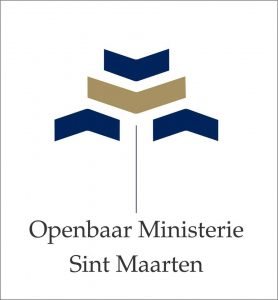Special Report: 7-parts series explaining the Public Prosecutor’s views on the statutes of limitations
 This is a special report brought to you by StMaartenNews.com outlining the views of the Public Prosecutor’s Office on the statutes of limitations pertaining to the length of investigations, in particular those of politicians, other public figures and prominent citizens on St. Maarten.
This is a special report brought to you by StMaartenNews.com outlining the views of the Public Prosecutor’s Office on the statutes of limitations pertaining to the length of investigations, in particular those of politicians, other public figures and prominent citizens on St. Maarten.
The introduction to this special report can be read online via the following article:
“Public Prosecutor’s Office shares views on statute of limitations“.
Part 1 – The Public Prosecutor’s Office and its workings
In this first part of this 7-parts series, we will discuss what exactly the Public Prosecutor (known in Dutch as the ‘Openbare Ministerie’ or ‘OM’ for short) is and what its role and tasks are.
In a constitutional democracy there exists what we call the ‘separation of powers’, the ‘Trias Politica’. The three separate powers of state. These three separate powers of state are the legislature, the executive branch and the judiciary. The judiciary consists of the standing magistrates (prosecutors) and the sitting magistrates (judges). The Public Prosecutor’s Office (OM) is part of both the judiciary and the executive branch. This means that the OM leads criminal investigations and prosecute suspects in a criminal case. The Public Prosecutor’s Office is impartial and is accountable to an independent judge.
According to the press officer of the Public Prosecutor’s Office, the OM stands up for the interests of the citizens of St. Maarten and therefore considers it important that the organization is aware of what is happening in society. The Public Prosecutor’s Office stands for transparency and is always willing to provide explanations about criminal cases and the policies pursued. Sometimes, however, this can not happen immediately, in order not to negatively affect a current investigation or to put people in jeopardy. It is the express wish of the Public Prosecutor’s Office to keep in touch with society and to create trust as a basis for good cooperation in tackling crime. The public authorities of St. Maarten can not fight crime alone and urgently needs the help of the citizens in doing this. For that reason, the Public Prosecutor’s Office will be more vocal in the media through press releases, online via Facebook and by giving presentations at schools and to (volunteer) organizations about the work of the Public Prosecutor’s Office.
According to the press officer of the Public Prosecutor’s Office, this policy will be further explained in the annual plans 2018 and 2019 of the Public Prosecutor’s Office. Policies of the Public Prosecutor’s Office are also discussed in tripartite meetings between the Chief Public Prosecutor, the Chief of Police and the Minister of Justice. Ultimately, it is the Minister of Justice who is politically responsible to give account to the Parliament of St. Maarten.
In part 2 we will discuss the process of how the Public Prosecutor’s Office carries out criminal investigations.
Part 2 – The process by which the Public Prosecutor’s Office carries out criminal investigations.
In part 1 we discussed the Public Prosecutor’s Office and its workings. In this part we will discuss how the OM carries out criminal investigations. In other words, how is a criminal investigation executed?
Criminal investigation must be carried out carefully and in accordance with the legal provisions. In the interest of the investigation, procedures can be applied that violate the personal life and privacy of a person. Also liberty depriving measures such as incarceration and pre-trial detention can be part of this process. However, these measures are in the interest of the investigation and the decision to do so is not taken lightly. In addition, they are reviewed by a magistrate or a judge.
When taking decisions in the context of a criminal case, the principles of good procedural order, including the principle of proportionality and subsidiarity, are also observed, in addition to the legal requirements. This means that the importance of the case must be in proportion to the infringement that is being made and that the goal can not be achieved in another, less drastic way. In addition, a reasonable and fair interest is weighed in each case for whether investigations and possible prosecutions are appropriate. Infringement of the principles of due process may lead to the case of the Public Prosecutor’s Office being declared inadmissible in court.
In part 3 we will discuss whether the Public Prosecutor alone can take the initiative to investigate and prosecute a case.
Part 3 – Does the Public Prosecutor’s Office work alone?
In part 2 we discussed how the Public Prosecutor’s Office conducts investigations. In this part we will discuss whether the OM operates as a standalone entity in the justice system or not and the effect this has on the lead time of investigations.
The Public Prosecution Service is part of the criminal justice system, which can be divided into four phases: investigation, prosecution, trial and execution. An important feature of the criminal justice chain is that the various organizations involved are dependent on each other. Acceleration, for example, on the ‘front-end’, such as police investigations, will not yield much for the overall lead times when delays in the prosecution or during the trial occur. This dependency makes the processes vulnerable. An effective and efficient cooperation in the justice chain is therefore of the utmost importance.
However, the law enforcement chain in St. Maarten has been under great pressure for many years. See the recent report “The state of law enforcement” of the Council for Law Enforcement in 2018. There are major concerns that the Law Enforcement Council have about the quality and effectiveness of the law enforcement chain on St. Maarten. There is insufficient staff, knowledge, expertise, quality, material, in all facets of the criminal justice chain. Each department suffers from a shortage of personnel and basic facilities are lacking across the board to allow law enforcement to function properly.
The Public Prosecutor’s Office underscores these concerns and concludes that this has consequences for the lead times of the criminal justice system of St. Maarten. Particularly complex cases, for which more specialist expertise is necessary, that is not always available in St. Maarten, are delayed. Support from other parts of the Kingdom in complex cases have a direct influence on the turnaround times and resolution percentage. This help and support is therefore an absolute necessity.
The Public Prosecutor’s Office, like the Council for Law Enforcement, advocates strengthening the law enforcement chain on St. Maarten, with a structural improvement process and an integrated (chain) approach across the board, both within the law enforcement chain and beyond. It requires (financial) commitment from the government of St. Maarten to invest in the criminal justice chain.
Conclusion for part 3 is that the Public Prosecutor’s Office does not work alone when it comes to investigating and bringing criminal cases to trial. It is a part of the criminal justice chain system and each link depends on the other to execute its work properly. So delays on the front-end can have a domino effect on the lead time of a criminal case before judgement is finally executed.
Note: We have also seen in practice on the ‘back-end’ that problems can also delay the execution part of the system if for instance the prison is full or (hurricane) damaged, whereby convicts are sent home due to lack of space in the prison or due to the inhumane situation of the prison because of its deplorable conditions.
In part 4 we will discuss the length of investigations carried out by the Public Prosecutor’s Office and another revelation is made.
Part 4 – The length of investigations carried out by the Public Prosecutor’s Office. How long does this actually take?
In part 3 we discussed that the Public Prosecutor’s Office does not work alone when it comes to investigating and bringing criminal cases to trial. It is a part of the criminal justice chain system and each link depends on the other to execute its work properly. So delays on the front-end can have a domino effect on the lead time of a criminal case before judgement is finally executed.
However, the Public Prosecutor’s Office has the so-called prosecution monopoly. This means that only the Public Prosecutor can prosecute criminal cases and bring them to court. Individual citizens can not do this. They can file a complaint with the police. Based on an investigation, the OM then decides on prosecution. If the complainant or interested party disagrees with the OM’s decision not to prosecute, the interested party concerned can complain to the court. The latter is not very common.
In this part we will discuss the length of investigations carried out by the Public Prosecutor’s Office and make another revelation.
Unfortunately, there are currently no reliable figures available at the Public Prosecutor’s Office to provide insight into the lead times of the criminal justice chain on St. Maarten. Unlike in the Netherlands, no research has yet been done on this.
However, in 2019 the Council for Law Enforcement intends to start an investigation into the lead times of criminal investigations and into bottlenecks within the criminal investigation chain. The aim is to gain insight into the lead times for the entire criminal justice chain as well as the lead times per chain partner.
The Public Prosecutor’s Office has stated it will fully cooperate with this investigation and looks forward to the results with interest.
In part 5 we will discuss whether it is allowed for investigations to last so long and who checks and oversees this.
Part 5 – Is it allowed for investigations to last so long and who checks and oversees this?
In part 4 we discussed the length of investigations carried out by the Public Prosecutor’s Office. Specifically, we wanted to know how long does this actually take in St. Maarten? Unfortunately, no hard data into the lead times of the criminal justice chain exists on St. Maarten.
In this part we question whether it is allowed for investigations to last so long, the so-called “statutes of limitations” and who checks and oversees this.
The Public Prosecutor’s Office made the following statement to StMaartenNews.com:
The “statutes of limitations” are included in the Criminal Code of Sint Maarten (‘Wetboek van Strafrecht ‘ – WvSr). After the expiration of these terms, the right to prosecute will lapse and the OM will be declared inadmissible by the criminal court. This is regulated in artikel 1:145 WvSr. Judgements of the Supreme Court show that the criminal judge sometimes takes into account the long course of the investigation and applies some penalty reduction for compensation. A standard judgment was issued in 2000 with an assessment framework and rules of thumb to be applied when the reasonable term was exceeded. This judgment was further refined and revised in 2008. There is also a complaints procedure that can be brought before the Court if the person concerned thinks that he has to wait too long for a decision. This is regulated in artikel 15 lid 3 WvSv.
The conclusion is that the statutes of limitations are regulated by law in St. Maarten and the courts oversees the adherence to this. The right to question the length of investigations is also laid down in a complaints procedure within the court system.
[Editor’s note: Part 5 deals with the legal basis for the length of investigations. It’s all in the criminal code. Even some refinements through jurisprudence and rulings by the High Court of Appeal. So if members of Parliament feel that the process takes too long, they can change the laws themselves.]
In part 6 we will discuss the question whether prosecutor investigations can not be executed any faster.
Part 6 – Can prosecutor investigations not be done faster?
In part 5 we questioned whether it is allowed for investigations to last so long, whether the so-called “statutes of limitations” exist and are applicable and who checks and oversees this.
In this part we will discuss the question whether prosecutor investigations can not be executed any faster.
The Public Prosecutor’s Office states that it strives for speed in the investigation process. This is partly dependent on the capacity of the police, which is now heavily understaffed. Fortunately, since the passing of hurricane Irma the Dutch police have been providing assistance to the local police force. From the moment that a person can reasonably assume that a prosecution will be started against him, the so-called reasonable term starts running. From that moment on, the case would have to be completed within two years, with the exception of special circumstances. In case of appeal, this will take two years longer. Particularly in the more complex cases, it can sometimes take longer for a judgment to be issued.
The Public Prosecutor’s Office says it is working on an improved registration process to gain insight into the turnaround times. The starting point is to modernize the working methods, such as working digitally in the criminal justice system,
modernizing the Criminal Codes (‘Wetboek van Strafvordering‘) and implementing various instruments such as JASAP (Justice As Soon As Possible,
a variant of the ZSM method that is used in the Netherlands),
‘Verkeerstorens’ (5-weekly consultations) and “Get it right the first time” (aimed at scheduling and counteracting waste of court times).
According to the press officer of the Public Prosecutor’s Office, these policies will be further explained in the annual plans 2018 and 2019 of the Public Prosecutor’s Office. As previously stated, policies of the Public Prosecutor’s Office are also discussed in tripartite meetings between the Chief Public Prosecutor, the Chief of Police and the Minister of Justice. Ultimately, it is the Minister of Justice who is politically responsible to give account to the Parliament of St. Maarten.
In part 7 – the last part in this series, we asked whether the rules on St. Maarten when it comes to investigations are different from those in the Netherlands.
Part 7 – Are the rules as they pertain to investigations and the length thereof on St. Maarten different from those in the Netherlands?
In part 6 we discussed the question whether prosecutor-led investigations can’t be dealt with faster. The Prosecutor’s Office indicated that it always strives to expedite investigations, but that the speed was partly dependent on the capacity of the police force, which is heavily understaffed. The explanation concluded that they are working on an improved registration process to gain insight into the turnaround times. The starting point is to modernize the working methods, modernizing the laws and implementing the use of various instruments to improve effectiveness and efficiency.
In this final part we will discuss the question whether the situation surrounding investigations and the length thereof in St. Maarten is the same as in The Netherlands.
One of our subscribers and avid readers emailed us the following:
“I have been reading your piece on the Justice system and how it works. Nice but there is more I would like to know. Is the time that it takes to process a case longer than in the Netherlands? Are we being treated different than cases in the Netherlands? That is what needs to be explained.”
This is basically the fundamental question that got this whole series started in the first place. To avoid any misunderstandings, here is literally what the Public Prosecutor’s Office had to say in Dutch as was dictated by the Chief Prosecutor via the Spokesperson:
“Ook in Nederland zijn de doorlooptijden van de strafrechtsketen continue onderwerp van gesprek op zowel politiek niveau als bij de ketenpartners zelf. In 2012 heeft het Wetenschappelijk Onderzoek- en Documentatiecentrum (WODC) een onderzoek gedaan naar de doorlooptijden waarbij een onderscheid wordt gemaakt tussen standaardzaken en complexe zaken. Met name in complexe zaken valt op hoe de doorlooptijden kunnen oplopen. Er zijn in Nederland verschillende projecten ingezet om de doorlooptijden te verminderen. In het Caribisch gebied wordt getracht om deze projecten te adopteren en te implementeren.”
Basically, what is being said is that “Also in the Netherlands, the lead times of the criminal justice chain are a continuous topic of discussion at both the political level as at the level of the justice chain partners themselves. In 2012, the Scientific Research and Documentation Center (WODC) carried out a study into the lead times in which a distinction is made between standard cases and complex cases. Particularly in complex cases, it is striking how the lead times can increase. Various projects have been implemented in the Netherlands to reduce turnaround times. In the Caribbean, efforts are being made to adopt and implement these projects.”
In principle, the Public Prosecutor’s Office is stating for the record that in terms of execution and the lengths of investigations there is no difference between the situation in the Netherlands and St. Maarten, even the debates are the same.
























